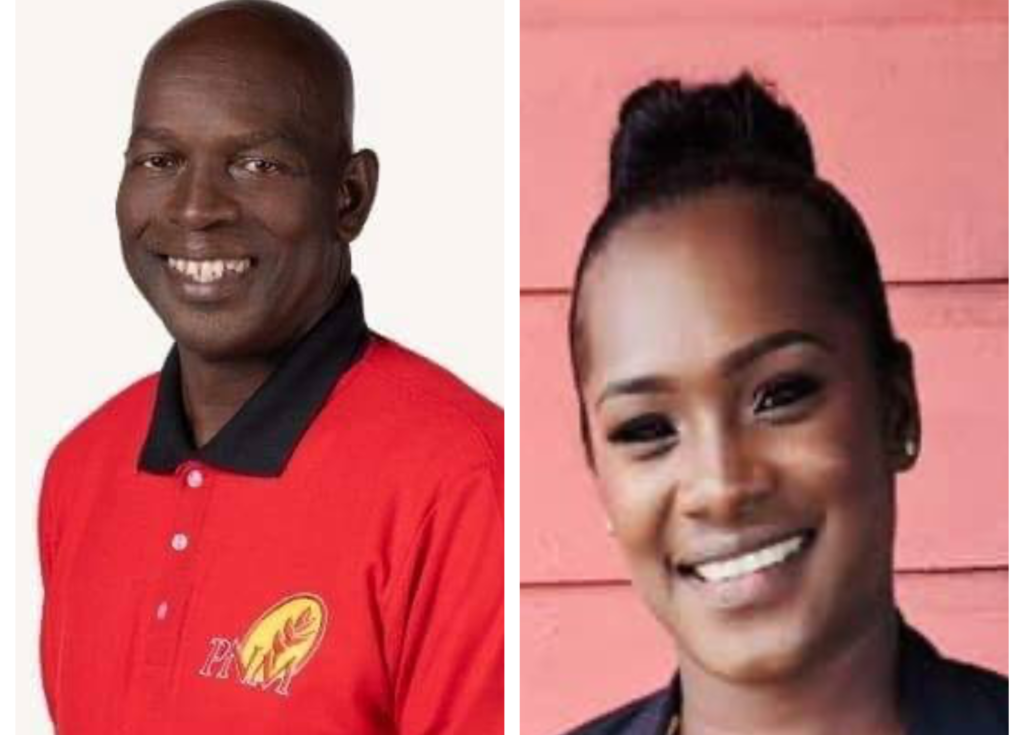Judge to rule on UNC's Lengua/Indian Walk election petition in January

A HIGH COURT judge will rule on the UNC’s election petition challenging the results of the local government election for the district of Lengua/Indian Walk in the new year.
On Friday, Justice Marissa Robertson said she would deliver her ruling on the petition on January 8, 2024, but would try to do so by the end of the year.
She gave the date after hearing submissions from attorneys for the UNC and the Election and Boundaries Commission (EBC) at a trial at the Waterfront Judicial Centre, Port of Spain.
The UNC filed the petition on August 21 on the basis of what took place after two recounts which led to the People’s National Movement (PNM) candidate Autly Granthume being announced the winner, over the UNC’s Nicole Gopaul-Jones.
Granthume initially received 1,430 votes compared to Gopaul-Jones’s 1,425. At the end of the first recount, each candidate received 1,428 votes.
However, the returning officer rejected a special ballot in favour of Gopaul-Jones, which would have broken the tie, because the presiding officer had not initialled it.
The candidate’s election agent and counting agent objected, but this was overruled and a second recount was done, resulting in the same outcome.
The EBC maintained its reasoning for rejecting the ballot as required by election rules under the Representation of the People Act. In subsequent correspondence, the EBC claimed Gopaul-Jones’s representative only objected after they realised the recount had ended in a stalemate.
In submissions, Gopaul-Jones’s attorney, Anand Ramlogan, SC, said there was no dispute that there were no initials on the ballot nor was there an allegation it was fake or suspect.
However, he maintained, "They (the EBC) cannot disenfranchise the voter.” He said the fault in the ballot's not being initialled was because of the election officials and the law recognised that such “human errors" could occur, so the ballot could have been signed on election night before the votes were counted.
"It would be absurd and perverse if they (special voters) do not have the same rights as normal voters," Ramlogan said as he urged the judge to uphold the voter’s right to vote.
"The act is there to facilitate the right to vote, not marginalise it."
In response, the EBC’s lead attorney, Deborah Peake, SC, said the election rules were clear and unambigious on the special voting process.
“There are steps in place to ensure the integrity of the process.”
Special voting was held a week before the August 14 local polls.
“Their evidence supports what we say. It was not a proper ballot,” Peake said, adding that there was no disenfranchising of the voter. She also said that the EBC cannot alter election rules even if it is in the interest of democracy.
“It was not a valid ballot.”
She also said the returning officer acted properly and lawfully in rejecting the ballot because of the absence of the signature.
"That is the law. If you don't like the law, change it.
"You cannot arrogate on yourself the power to supplement the rules."
"They have no discretion to say, 'I don't like the rule,' or, 'I think it is unfair.'”
She also said UNC election officials did not complain about the ballot being rejected during the count on election night, but only did so at the recount when they knew the result was a tie and the ballot could decide the election.
"Only when they saw the name of who was voted for, then the situation changed.
“It is for this reason, we say the petition was misconceived and should be dismissed.”
Addressing the court was Senior Counsel Michael Quamina, who represented the PNM as an interested party in the petition. He, too, said the election rules set out the procedure for special voting and ballots.
“How on earth can you expect a ballot to be counted without an initial? There is no unambiguity. The only way to authenticate the ballot is by the initials.”
Also appearing with Ramlogan for the UNC are attorneys Jayanti Lutchmedial, Kent Samlal, Natasha Bisram, Vishaal Siewsaran and Sadaam Hosein.
Representing the EBC are Ravi Heffes-Doon, Alana Bissessar and Stephan Maharaj.
Also appearing for the PNM are Ravi Heffes-Doon, Alana Bissessar and Stephan Maharaj.
Regardless of who wins Lengua/Indian Walk in a possible by-election, the Princes Town Regional Corporation will remain in the group of seven corporations retained by the UNC and there will still be a seven-seven electoral tie between the PNM and UNC coming out of the August 14 local government elections.
A fresh election was declared for the district after the returning officer declared the election void .
As with all election petitions, if the petitioner is unsatisfied with the High Court’s decision, it can appeal only to the Court of Appeal, as the Privy Council has no jurisdiction over such electoral litigation.
In September, a similar petition in the Arima Northeast district was dismissed in the High Court.


Comments
"Judge to rule on UNC’s Lengua/Indian Walk election petition in January"